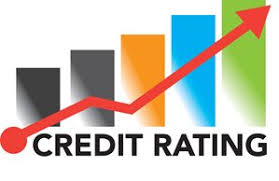What are Business tradelines?
A business tradeline is a line of credit made available to the proprietor of a company by a particular supplier. This credit can be used for a variety of purposes. The business receives goods or services in return for an agreement that payment will occur later. There is a large selection of vendors out there that are ready to take payments later and provide business tradelines as a way of payment in exchange for their goods or services.
Let’s begin from the very beginning and get a fundamental understanding of commercial tradelines. Find out why having business tradelines is vital and how to set up business tradelines so that you may focus on growing the credit for your company. This will allow you to manage your company’s finances better.
Types of Business tradelines
There is a possibility that your credit reports will contain information on personal tradelines. Personal tradelines might include information about personal loans, credit cards, and lines of credit. Financial and vendor tradelines are the two types of business tradelines that may be seen on a company’s credit report. Two kinds of tradelines are considered separate categories.
Financial tradelines are a record of your company’s history of obtaining and repaying (or failing to make payments) financial commodities such as a business credit card, loan, lease, or line of credit. This history might affect your company’s credit score. The tradelines that a bank, credit union, or other financial institution reports on your company are regarded as the financial tradelines for your company.
Additionally, business credit reports could include tradelines with the firm’s many customers and suppliers. Depending on the context, these are also known as tradelines, merchant, company, or supplier tradelines. The terms “supplier tradelines” and “vendor tradelines” are both terms that refer to the net payment accounts that you might have with several vendors and suppliers.
You will have 30 days to pay an invoice after it has been given to you if you have a net-30 account with a supplier, for example. This means that you can form such an account with the supplier. The credit report for your company may probably include information regarding the total amount of credit used, as well as details regarding whether or not payments were made early, on time, or late.
There are a few distinct business credit bureaus that, in addition to other information relevant to your organization, maintain track of business tradelines.
Benefits of business tradelines
Approval of Credit
It takes a small business a little time to build a credit rating, which might influence the company’s ability to get financing. When your credit score is low, your chance of getting accepted for a loan to start or grow a business will likely be considerably reduced. If you secure a tradeline for your company, it might raise your credit score and make your business more appealing to potential lenders.

Lower Rate of Interest
If a company has a poor credit history or has not yet established itself in the market, it will have difficulty obtaining low-interest financing. Lenders are far more cautious about putting their cash at risk by investing in businesses that do not have a history of successfully paying back their loans.
When you add a tradeline to your credit report, it gives lenders a better picture of the risk they are taking on; consequently, they are more likely to grant you a loan. This is because tradelines tend to be longer and have higher credit limits.
When it comes to paying off their principal commitments, it is much more difficult for smaller businesses since they are more likely to have taken out loans with high-interest rates. If you add a tradeline to your credit report, you will boost your likelihood of getting approved for a business loan, and the interest rate that you will be required to pay back on the loan will also be reduced.
Discounts on Insurance for Businesses
Companies with bad credit ratings have a reduced likelihood of receiving the essential insurance coverage to protect their business. This is because insurance companies view poor credit ratings as a greater risk.
When determining the size of a policy to issue, insurance companies will undoubtedly consider a company as one of the elements to take into account. Including a well-established tradeline on your credit report might increase the likelihood that you will be approved for the essential insurance coverage you want. You will end up with a better score as a consequence of this.
As a business owner, one of your top responsibilities should be improving your company’s credit score and maintaining its positive status. Increasing the credit score of your company and laying the road for its future growth and success are both things that can be done via the employment of tradelines as a financial tool.
How do the tradelines work?
When an individual is added to another person’s account as an authorized user, the whole history of the account is typically recorded in the records of both the primary account holder and the AU. This is because the account records are shared between the two parties. This is because the primary account holder previously had ownership of the account.
This is because credit records did not contain the date when the AU was added to the account. As a result, this situation has arisen. Once the AU has been added, there is a chance that their credit report will begin displaying the years of history associated with the account.
One example is when a parent gives their child a head start on their credit history by adding them as an authorized user on one of their credit cards. This is a common way for parents to assist their children in building credit. The child will have the option to begin establishing credit at an earlier age as a result of this.
Financial institutions and websites that provide financial education frequently advocate for the practice of becoming an authorized user, which is also sometimes referred to as “credit piggybacking.” Piggybacking is when someone uses another person’s credit without their knowledge or permission.
How to get business tradelines?
If you create a credit account for your firm with a provider that reports to at least one of the business credit bureaus, you can obtain a business tradeline. Before applying for financing or trade credit, you can get in touch with the firm and inquire whether or not they report if you are unsure about or not they do.
You can also ask the companies already providing you services or goods to report your account to multiple credit bureaus.
Contacting the credit department of the firm is something you should do if you are having problems getting authorized for a loan, a line of credit, or a trade credit account. They may be able to provide you with a concise explanation of the requirements as well as the reasons why they are rejecting your application.
How do business tradelines impact your credit?
Because your credit report is essentially a file that contains information about your tradelines and how well you manage them, tradelines, in general, are the foundation of all credit, as we discussed in our article on building credit. This is because your credit report is a file containing information about how well you manage your tradelines.
When considering the role that each of your accounts plays in your overall credit picture, the most important factors to consider are your payment history, the amount of credit you use, and how long you’ve had credit. Since these factors have the most impact on your credit score, they are also the most important.
Conclusion
Building a company’s credit is similar to racing: going slowly but steadily is the best strategy. Avoid using shortcuts, such as buying tradelines, and instead invest some time and energy into learning how traditional credit reporting organizations operate. A credit score of 80 is well within reach if sufficient time is invested in addition to persistent effort. Buying tradelines to boost a company’s credit is, in our opinion, fraught with an unacceptable level of danger due to the possibility of alerting potential lenders.



